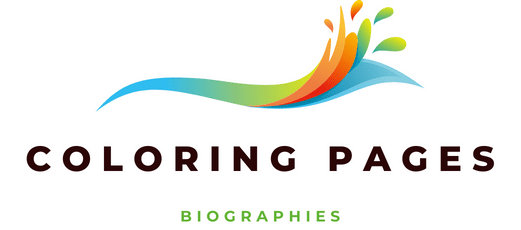From the melodic tunes that drift from your radio on a lazy Sunday afternoon, to the energizing hits that keep your feet moving at the gym, the relationship between music and our state of mind is powerful and undeniable. However, it’s not just recreational. Scientists, scholars and proponents of Csikszentmihalyi’s Flow Theory suggest that listening to music can induce a ‘flow’ state – a highly focused mental state conducive to productivity. Moreover, music appears to have stress-relieving properties, which can help manage work-related anxiety.
Flow, Music, and Productivity
Flow, as conceptualized by psychologist Mihaly Csikszentmihalyi, is a state of being so immersed in a task that you lose track of time and everything else seems to fade away. Achieving this state can dramatically enhance productivity and creativity. Music, particularly when matched to the task at hand, can facilitate this process.
Also read : How Does Intermittent Silent Reading Influence Stress Levels in High-Pressure Professions?
Several studies have explored this phenomenon. For instance, a study published in PLOS ONE found that software engineers who listened to music experienced a higher state of flow and were more productive than those who did not. This is likely because music helps drown out distractions, enabling participants to focus on their task.
Furthermore, a 2019 study published by the American Psychological Association asserted that background music increased task performance, creativity, and problem-solving abilities in participants. The study hypothesized that non-intrusive, instrumental music enhances cognitive processes that facilitate flow, thereby improving task performance.
Also read : What Role Does Magnesium Play in Preventing Migraine Attacks?
Reducing Work-Related Anxiety
Work-related stress and anxiety are common issues for many people. Music, however, can offer a natural and effective solution. A study published in the Journal of Advanced Nursing showed that participants who listened to calming music for 30 minutes experienced significantly lower stress levels than those who did not.
In a different study published in the journal Music and Medicine, researchers found that listening to 30 minutes of classical music reduced systolic blood pressure, a common indicator of stress. Participants reported feeling less anxious and more relaxed.
Moreover, a study indexed on PubMed showed that listening to music before a stressful event can help manage stress responses. Participants who listened to uplifting music before a public speaking task had lower heart rates and lower self-rated anxiety levels than those who did not listen to music.
The Power of Music in the Workplace
The impact of music on productivity and anxiety levels is not lost on the corporate world. Many companies are incorporating music into their workplace culture to boost morale and productivity. Google, for instance, has music rooms at its headquarters where employees can take breaks to play an instrument or listen to music.
A report by the Music and Work Performance (MWP) research group found that music in the workplace can increase employee satisfaction, improve mood, and decrease burnout. Employees who listened to music while working reported higher job satisfaction and were more likely to recommend their company as a good place to work.
Selecting the Appropriate Music
Not all music is created equal when it comes to inducing flow and reducing stress. The type of music that works best can vary depending on the individual and the task at hand. As a general guideline, music with a slow tempo and low volume can help reduce heart rate and stress levels. For tasks requiring focus and concentration, music without lyrics is recommended as it is less likely to distract the listener.
CrossRef, an academic citation indexing service, notes numerous studies recommending classical music for tasks requiring focus. Baroque music, in particular, with its structured rhythms and predictable harmonic patterns, is known to induce a state of relaxed alertness conducive to productivity.
To sum it up, music, when used appropriately, can be a powerful tool to boost productivity and manage stress at work. Whether it’s classical tunes for focused tasks or upbeat rhythms for creative brainstorming, the right music can help you achieve a state of flow and make your work experience more pleasing and less stressful.
Efficacy of Music in Controlling Trait Anxiety
The complexities of modern life often lead to pervasive feelings of anxiety, which can have harmful effects on mental health. Fortunately, listening to music has been shown to be an effective method in controlling trait anxiety. Experts define trait anxiety as an individual’s predisposition to react with anxiety to perceived threats in the environment.
According to a study accessible via Google Scholar, music listening not only promotes relaxation but also helps in coping with stress, thus reducing trait anxiety. The study further elaborates that listening to preferred music enhances the positive effects of music on stress and anxiety.
Another study, indexed in PubMed and available in full text, indicates that listening to relaxing music prior to a stressful task reduces anxiety, heart rate, and blood pressure. The abstract in CrossRef also highlights that participants who listened to music before the task experienced less anticipatory anxiety.
Furthermore, a research piece indexed in DOI PubMed suggests that music listening can have a significant positive impact on psychological health by reducing anxiety and depression. The full text on Google Scholar explains that the positive effects of music on mood and anxiety may enhance the experience of flow, thereby improving work performance and productivity.
Music and Flow States: A Conclusion
As can be seen from the evidence presented, the power of music in inducing flow states and reducing work stress is not a phenomenon to be underestimated. Its benefits are not only backed by scientific studies, but also acknowledged by corporations who have witnessed tangible improvements in employee satisfaction, mood, and productivity.
As per research available on Google Scholar, CrossRef, and PubMed, listening music can provide an antidote to anxiety, a stimulant for productivity, and a gateway to experience flow. Whether it’s the structured rhythms of Baroque music aiding in focused tasks, or the gentle melodies of classical tunes providing solace from stress, the right music can transform the work environment.
It’s important to remember that the type of music effective in inducing flow or reducing stress may vary from individual to individual and task to task. Hence, personal preference and task requirements should be considered when selecting music.
In conclusion, music, utilized properly, can be a formidable tool to boost productivity and manage work stress. It can help individuals achieve a flow state, making work more engaging, efficient and enjoyable. So, the next time you’re feeling stressed and overwhelmed at work, consider putting on some music. It could be the key to unlock your productivity and restore your mental health.











